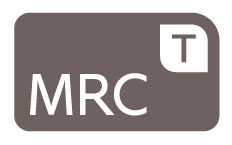 A method for linking proteins together with specific chemical bonds, developed in the LMB’s PNAC Division by Satpal Virdee and Jason Chin, has been licenced by MRC Technology to the global life sciences company Bio-Techne. The company will use the technology to join ubiquitin, or other proteins, to a target protein, enabling both fundamental research into biological regulation and drug discovery.
A method for linking proteins together with specific chemical bonds, developed in the LMB’s PNAC Division by Satpal Virdee and Jason Chin, has been licenced by MRC Technology to the global life sciences company Bio-Techne. The company will use the technology to join ubiquitin, or other proteins, to a target protein, enabling both fundamental research into biological regulation and drug discovery.
Jason’s group have been pioneering methods to reprogram the genetic code of living
organisms. GOPAL, which stands for Genetically encoded Orthogonal Protection and Activated Ligation, is a new technology that allows cells to produce proteins that can be linked together in a precise way. Ubiquitin is a small but important regulatory protein that can form polymers of different types of poly-ubiquitin chains. The different ways of linking ubiquitin make it difficult to produce samples in which two ubiquitin proteins (dimers) are linked at a desired position on the protein. However, the GOPAL technology makes it possible to produce high quality dimers of ubiquitin that are linked at specific positions on ubiquitin through specific chemical bonds.
Bio-Techne, (Techne Corp.) is a global life sciences company that produces tools and resources for research and clinical diagnosis, to help scientists understand biological processes and diseases. The licence will enable Bio-Techne to use the GOPAL technology, initially for developing specific dimers of ubiquitin, then for investigating other potential protein modifications. The technology will help produce new protein reagents that can be used in research and drug discovery.
The GOPAL technology was licenced to Bio-Techne by MRC Technology on behalf of the MRC. MRC Technology is an independent life science technology transfer charity, bridging the gap between basic medical research and commercialisation.
Further References:
Jason’s group page
Satpal’s group page
Bio-Techne
MRC Technology